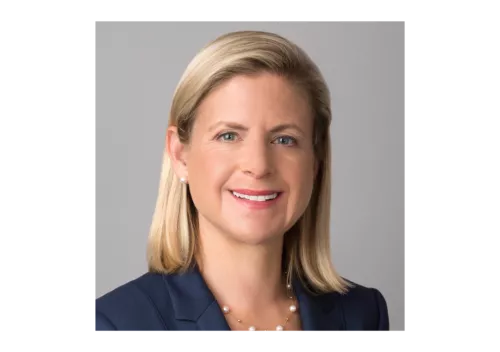Bill Crane wins Lifetime Achievement award
When it comes to preparing for – or avoiding – a proxy fight, there are few people in this world more capable than William (Bill) Crane. Some might even say he has earned prophet status when it comes to advising firms on proxy matters.
Since joining Georgeson Shareholder Services in 1981, Crane has been advising leading domestic and international corporations on strategies for both hostile takeovers and friendly acquisitions, taking part in nearly 300 contested solicitations during his career. His dedication to doing whatever was necessary to meet his clients’ needs helped him to become president of Georgeson and later chairman of the board. After his retirement earlier in the year, he was named winner of the 2013 Corporate Secretary award for lifetime achievement in corporate governance.
Crane oversaw Georgeson’s proxy division for years, developing a reputation as one of the best in the business as he played a major role in shaping what the proxy solicitation firm has become today. When he started in the 1980s there was the occasional hostile takeover, but nothing on the scale of the shareholder activism we see in the current environment.
‘Part of Bill’s legacy at Georgeson is that he helped steer the company through a momentous change in proxy solicitation, during a time when shareholder activism was just in its infancy, to a period where it’s a part of our everyday life,’ observes Georgeson president David Drake.
With his more than 30 years of experience in the proxy business to draw upon, Drake describes Crane as ‘an incredible resource regarding even the most arcane aspects of proxy solicitation. There was almost no situation you could face – whether in a proxy contest, a merger transaction or an annual meeting of shareholders – that he wouldn’t have a potential answer or suggested solution for.’
Evolution and experience
Crane undoubtedly witnessed the evolution of the proxy voting process and the proxy solicitation business from the inside. He first joined Georgeson in the 1980s, at a time when the proxy voting process was very onerous. Proxy cards were mailed to beneficial owners by brokerage firms and banks, and data files from transfer agents were provided on nine-track tapes. Western Union telegrams were often used to transmit votes. This manual nature of the process made for long days and nights restoring lost Western Union votes and logging each voted proxy by custodian. Finally, results were tallied and shipped overnight by courier to regulators and other officials.
Crane worked hard in those days, starting in the trenches as an account executive with the proxy team and displaying an unmatched work ethic as he learnt every aspect of the business. Colleagues describe him as a ‘roll-up-your-sleeves kind of guy’ who wouldn’t hesitate to lend a hand at crunch time. Once he became a manager, ‘he helped instill a work ethic at the company that required personnel to be accountable but also work independently,’ says Donna Ackerly, senior managing director at Georgeson.
As the era of the corporate raiders took hold in the late 1980s, Crane’s top-to-bottom knowledge of the proxy process gave him an edge as Georgeson and other companies began expanding their advisory services. The time he spent at Citibank’s securities division prior to joining Georgeson also gave him experience that others lacked. Early on, the New York University graduate proved himself to be one of the best-prepared advisers in the business, and he built on that reputation over the years. As Ackerly notes, ‘His creative thinking and sound advice helped many clients contend with some of the early raiders, like T Boone Pickens, Harold Simmons, Sir James Goldsmith and Carl Icahn.’
More recently, Crane has drawn praise from investment banks, law firms and industry associations that have sought his counsel on a range of issues. ‘What made working with Bill so helpful was the depth and breadth of his knowledge of the proxy contest process,’ says Janet Geldzahler, of counsel for Sullivan & Cromwell. ‘It’s important to know you’re working with someone who is thoroughly versed in the mechanics of the proxy process, who knows the players and how to interact with them, and who has an encyclopedic knowledge of prior contests.’
Under Crane’s leadership, Georgeson has evolved into one of the world’s pre-eminent proxy solicitation firms, helping companies manage every aspect of the process with the use of advanced technologies. Crane himself continues to have an impact on the governance industry as an authoritative speaker on proxy topics and as an active member of several organizations including the Securities Transfer Association, the Corporate Transfer Agents Association, the Society of Corporate Secretaries and Governance Professionals and the Securities Industry Association.
Sage advice
As markets remain volatile and shareholder activists become more influential, Crane offers the following advice to corporations looking to protect themselves from negative shareholder actions or proxy battles in the near future.
Review governance policies. ‘Companies should take a very close look at their corporate governance policies in terms of their bylaws and charter,’ Crane advises. ‘That’s something institutional investors focus on.’
He explains that many corporations have anti-takeover provisions from the 1980s that they are still bound to adhere to. Such provisions are viewed much more negatively now than when they were adopted; so, Crane suggests, it might be a good idea to remove them and take credit for being proactive rather than wait for investors to raise objections.
Communicate with all investors. Crane says shareholder engagement is standard procedure these days. ‘Obviously communication with institutional investors is critical, but ensuring that information is passed on to your retail investors is absolutely essential for the proxy solicitation process to work best for a company,’ he advises. ‘It’s critical that companies maintain an active dialogue with all their investors to make sure they fully understand what’s going on.’
Focus on compensation issues for 2014. ‘I think there is still a lot of focus on compensation issues as far as the senior executives of the company are concerned,’ Crane warns. He says the companies that received relatively low passing votes in favor of their executive compensation plans have received a clear message from investors that it’s time to make changes. ‘Those companies have to address this, or it will be a major issue in 2014,’ he concludes.
For photos of the 2013 awards, click here.
Award sponsor: Corporate Secretary








